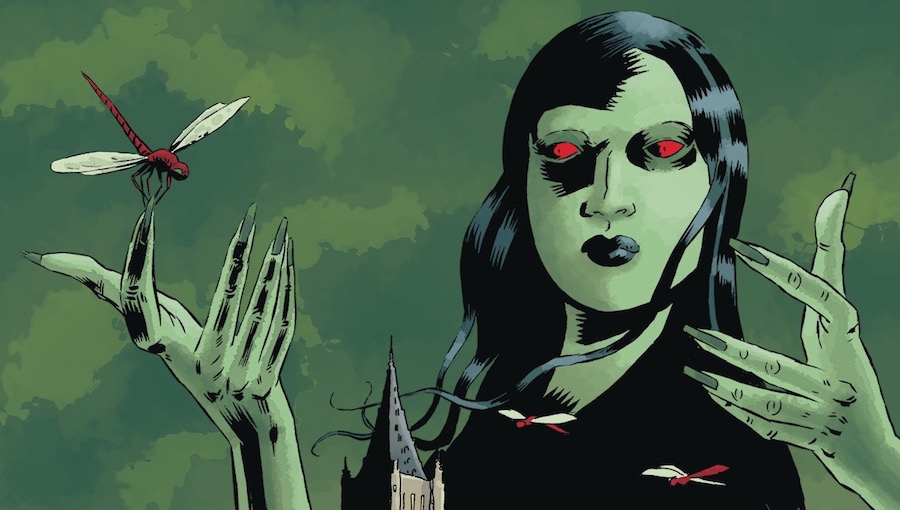For the moment, this seems to be the end of the main story arc to Black Hammer, Jeff Lemire and Dean Ormston’s love letter to superhero tropes and mythologies. (Although, with Black Hammer / Justice League and another Black Hammer mini-series promised for the end of the year, there will be plenty more to come!) In this love letter, they stripped away the “super” from our heroes, and we watched as some embraced being normal, while in others the trauma of not being who they were meant to be played out.
While writing this review, my next thought came to me, and the weight of this multi-year story arc struck me, and it struck me with some intensity quite unexpectedly. Someone turn off the faucet, please… I’ve been waiting for the past eighteen hours – since first reading the issue – to be affected. That’s not a bad thing. This is a thinking person’s comic series, but the emotions run deep. Since the beginning, I’ve written that this is a story about family – not your normal nuclear family, but the kind that comes with bumps and bruises. The kind that makes sense only because it doesn’t. The kind that no matter how much you’re at each other’s throats, you love them, because they’re the family you’ve chosen. The Justice League are a family, the X-Men are a family, the characters from Black Hammer are a dysfunctional family, but a family none the less, and that theme becomes the center of attention in the final two issues. Being a hero isn’t simply about saving a city or a universe. Sometimes, it’s about saving the people who mean the most to you.
Is there a lot more going on in this Black Hammer universe? Yes. Oh, so much. While the series, at times, has become meta, it’s never had its head up its back side. By exploring the family tropes of the superhero mythologies, Lemire also explored the ideas of stories, and in doing so has given his characters the power to write their own. He gave them the choice to be who they wanted to be. In doing so, he gives the reader that same power.
From an aging superhero who wants nothing but to retire, to a gay alien from Mars, to a dark, lonely anti-hero, to a woman of age stuck in a child’s body, we have seen the emotional scars of what it means not only to be a superhero, but to be human, and in turn we see the power of family and the power of choice. Some might see a sort of Twilight Zone bittersweet in these final pages. At first, I did too, and maybe there is some of that, because there is an unspoken sacrifice that is made, but there’s also love and hope. This may be the first time that these characters have been able to embrace these feelings in an unfettered way.
Continued kudos to Ormston and Stewart. Visually, this world is sumptuous and rich with life. As a team, they’ve managed to merge a Golden Age feel with a modern age aesthetic. It’s a look that feels like home. And no matter where Lemire takes this universe and these characters, as we’ve already been to and seen some of their futures and histories, I will be there ready and waiting.
Creative Team: Jeff Lemire (writer), Jeff Lemire and Dean Ormston (creators), Rich Tommaso (artist, letters), Daniel Chabon (editor), Brett Israel (assistant editor)
Publisher: Dark Horse Comics
Click here to purchase.

